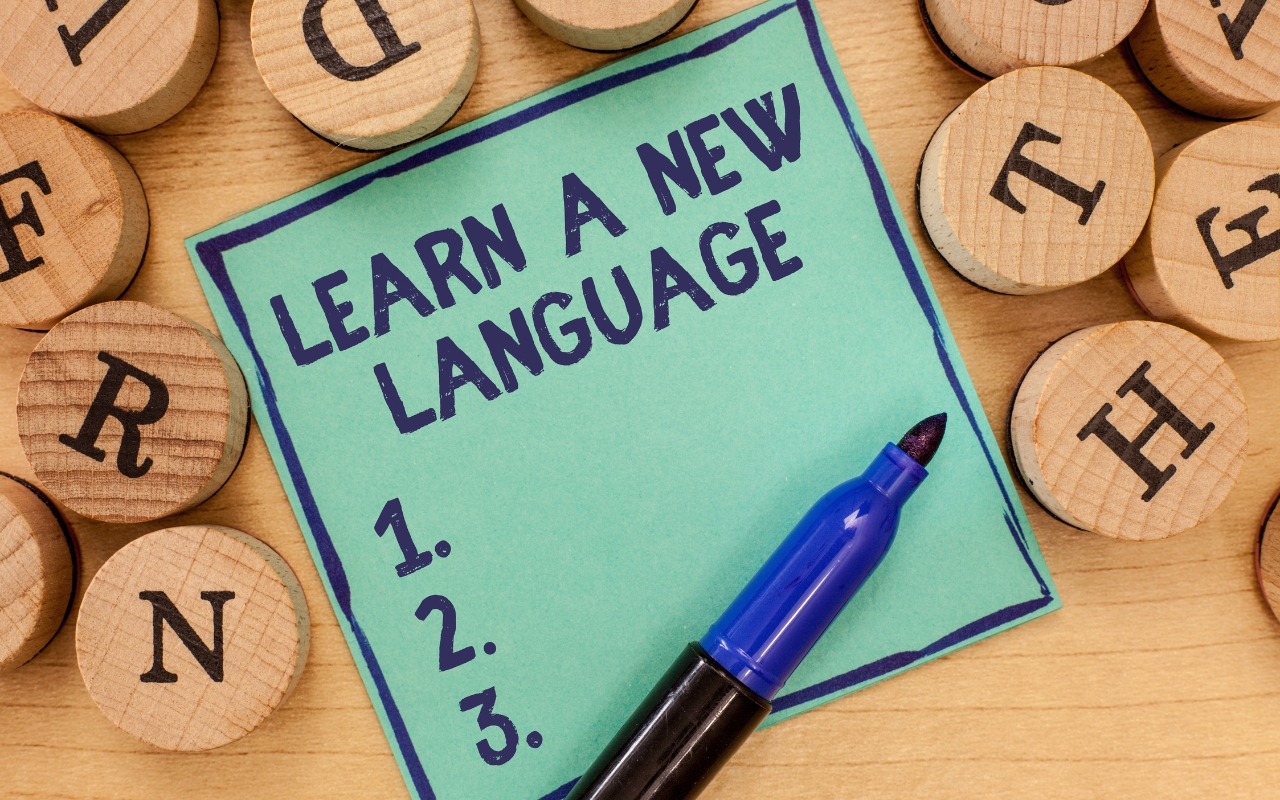In an increasingly interconnected world, multilingualism transforms from a luxury to a necessity. Beyond professional advantages, learning a new language's cognitive and mental health benefits are extensive and profound. This article delves into the multifaceted advantages of acquiring a second language, exploring how it enhances cognitive abilities, fosters creativity, improves mental health, and positively impacts personal growth.
Enhancing Cognitive Abilities
Learning a new language is a powerful workout for the brain. When an individual acquires a new linguistic system, it activates comprehensive brain networks across various regions. This extensive engagement is known to have several significant cognitive benefits.
One prominent advantage is enhanced cognitive flexibility. Bilingual individuals often demonstrate superior mental agility, allowing them to switch between tasks more efficiently. This heightened flexibility extends to multitasking capabilities, a critical skill in today’s fast-paced environment. Bilingual people practice switching between languages daily, a mental exercise that translates into improved multitasking abilities in other areas of life.
Further, language learning improves memory retention. Consistent practice of acquiring new vocabulary and grammatical structures sharpens the brain's memory centers, leading to better retention and recall abilities. This cognitive exercise helps delay the onset of age-related cognitive decline, including diseases such as Alzheimer's and dementia. Studies have shown that bilingualism increases the brain’s cognitive reserve, protecting against the degenerative processes typically seen in aging brains.
Moreover, language acquisition strengthens problem-solving skills. Understanding and using a different linguistic framework necessitates recognizing patterns, applying rules, and constructing meaning within unfamiliar contexts. These transferable skills can enhance problem-solving abilities in various non-linguistic domains, boosting overall cognitive prowess.
Fostering Creativity
Language and culture are inextricably linked, and learning a new language opens the door to understanding and appreciating a different cultural perspective. This cultural immersion significantly boosts creativity. Exposure to new idioms, expressions, and ways of thinking fosters a more flexible and original mindset.
Creativity thrives on novelty and diversity, both of which are inherent in the process of learning a new language. The brain is stimulated to find innovative ways to connect unfamiliar words and phrases, leading to unique linguistic constructions. This creative exercise spills over into other areas of life, enhancing problem-solving and artistic abilities.
Moreover, multicultural awareness gained through language learning encourages individuals to view the world from varied perspectives. This broadened outlook fuels original thinking and innovative ideas. The understanding of cultural norms, histories, and practices enriches one's ability to generate unique solutions and approaches to everyday challenges.
Experts assert that nurturing creativity through language learning also improves psychological well-being. Engaging in creative activities has been shown to reduce stress, increase happiness, and foster a sense of achievement and fulfillment. Thus, the creative boost gained from learning a new language significantly contributes to overall mental health.
Improving Mental Health
The benefits of language learning extend beyond cognitive enhancements to substantial mental health improvements. Several studies have elucidated the positive impact of multilingualism on mental well-being.
Reduced stress levels are a notable benefit. Language learning demands focus and dedication, creating an immersive experience that can effectively relieve stress. The cognitive engagement required distracts the mind from everyday anxieties, providing a welcome mental break. This meditative aspect of learning helps lower stress hormones, promoting a calm and balanced state.
Moreover, language learning combats social anxiety. Developing proficiency in a new language often involves conversing with native speakers, attending language classes, or participating in online forums. These interactions build social skills and boost confidence, reducing the fear of judgment or rejection in social situations. Practicing language skills in a safe environment helps individuals become more comfortable and practical communicators, enhancing their overall social competence.
Research also highlights that language learning can alleviate symptoms of depression. Mastering a new language fosters a sense of progress and accomplishment, which is crucial for self-esteem and mental well-being. Setting and achieving learning milestones provides a consistent source of motivation and positivity, counteracting depressive thoughts and feelings.
Notably, the cognitive benefits of language learning, such as improved memory and cognitive flexibility, also contribute to mental resilience. Engaging in regular mental exercises helps keep the brain sharp, making it more resistant to mental health issues associated with aging and cognitive decline.
Impact on Personal Growth
Learning a new language significantly contributes to personal growth by fostering empathy, enhancing self-esteem, and opening up new opportunities.
Empathy and cultural understanding are key by-products of language learning. Learning about the associated culture, customs, and societal norms requires acquiring a new language. This cultural education fosters empathy as learners gain a deeper appreciation for different ways of life. Understanding and respecting cultural diversity enriches interpersonal relationships and promotes a more harmonious coexistence.
Furthermore, language learning enhances self-esteem. The consistent effort and success in acquiring new linguistic skills build a sense of competence and self-efficacy. This boost in confidence permeates other areas of life, encouraging individuals to take on new challenges and pursue personal and professional goals with greater assurance.
Additionally, multilingualism opens up diverse opportunities. Proficiency in multiple languages is a highly sought-after skill in the global job market. Employers value bilingual candidates' enhanced communication abilities, problem-solving skills, and multicultural competence. This edge can significantly enhance career prospects and professional growth.
Moreover, language learning encourages lifelong learning and intellectual curiosity. The journey of mastering a language often leads to an interest in other areas of study, such as history, literature, and international relations. This intellectual curiosity promotes continuous learning and personal development, enriching one's life experience.
Practical Tips for Language Learning
Given the myriad benefits, it is worthwhile to approach language learning with effective strategies. Here are some practical tips to help you on your linguistic journey:
- Immerse Yourself: Surround yourself with the language as much as possible. Watch movies, listen to music, and read books in the target language. Immersion helps you grasp the nuances and rhythm of the language more naturally.
- Practice Consistently: Regular practice is key to language acquisition. Set aside dedicated time each day to study and practice, even just for a few minutes. Consistency reinforces learning and builds fluency over time.
- Engage with Native Speakers: Interacting with native speakers is invaluable for practical language use. It helps you understand colloquial expressions, improve pronunciation, and gain confidence in conversational skills. Consider joining language exchange groups or using online platforms to connect with native speakers.
- Use Technology: Leverage language learning apps, online courses, and educational videos. These resources offer structured lessons, interactive exercises, and instant feedback, making learning more engaging and effective.
- Stay Positive and Patient: Language learning is a gradual process that requires patience and persistence. Celebrate small victories and stay motivated by reminding yourself of the long-term benefits. Embrace mistakes as opportunities for growth and keep pushing forward.
Conclusion
The journey of learning a new language is a profound investment in cognitive and mental well-being. Multilingualism offers a comprehensive array of benefits by enhancing cognitive abilities, fostering creativity, improving mental health, and promoting personal growth. Embracing language learning opens up new opportunities, enriching personal and professional life.
Numerous resources are available to support those looking to embark on this rewarding journey. Platforms like Language Network and Lingoda offer valuable tools and insights to aid your language learning process. Embrace the challenge, enjoy the process, and unlock the numerous benefits of becoming multilingual.
By diving into the linguistic and cultural depths of a new language, you expand your communicative abilities and enrich your cognitive and mental landscape, paving the way for a more fulfilling and empowered life.









